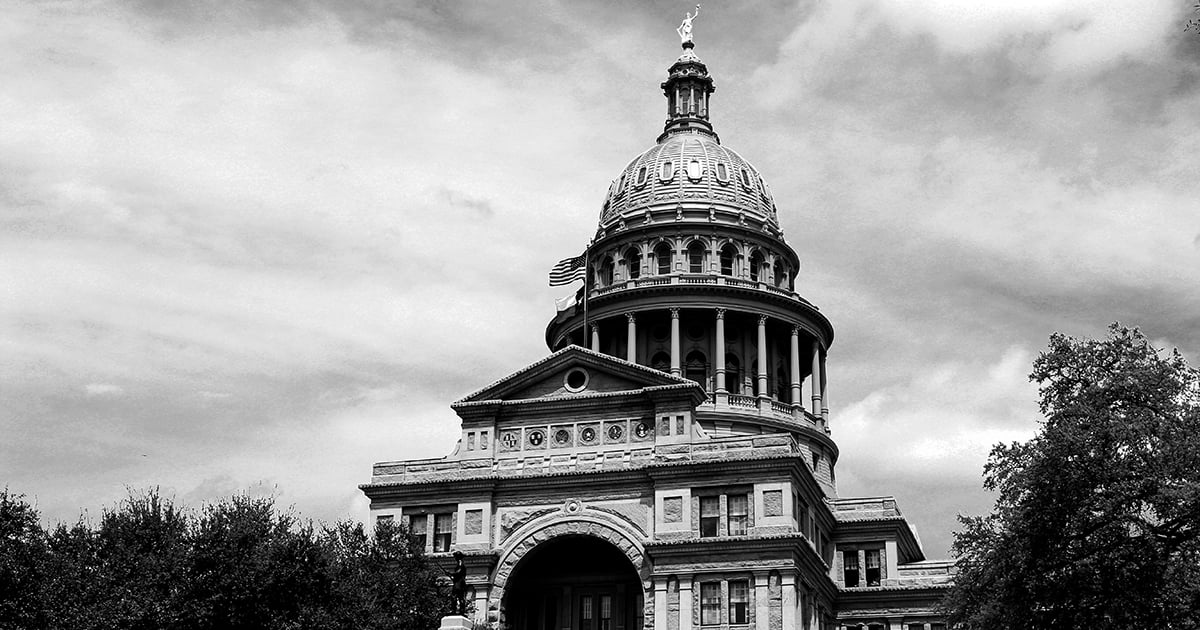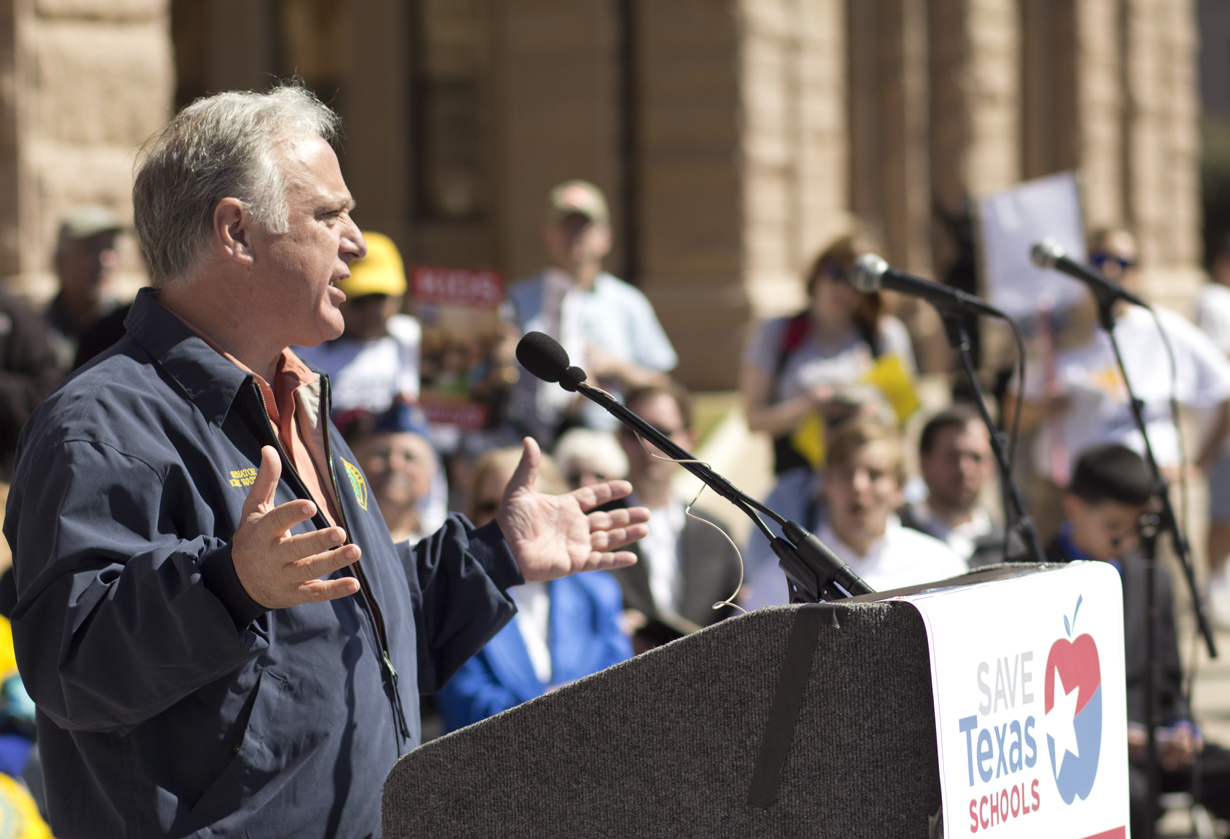
Ready, Set, File: Transparency Bills Passed by Legislature Could Open the Door to Once-Public Records
The measures would sew up the so-called Boeing loopholes, which the government has used thousands of times to keep taxpayer-funded deals private.

UPDATE: The effort to close the “dead suspect” loophole, which Texas law enforcement agencies have used to keep secret the circumstances surrounding in-custody deaths, has been killed. The attempt to shine light on such deaths was attached as an amendment to a Senate transparency bill by Representative Joe Moody, an El Paso Democrat. Moody ultimately withdrew the amendment from Senate Bill 944 amid opposition from the Combined Law Enforcement Associations of Texas and Governor Greg Abbott.
After a hard fight spanning four years and two legislatures, it looks like Texans’ right to know what their government is up to has been restored in important ways this session. The biggest victory came on Friday, when the so-called Boeing loophole — named for the aircraft manufacturer that sued to keep a lease agreement between the company and the government secret in 2015 — was closed by lawmakers. The carve-out has been used by private companies and the government itself thousands of times to hide how taxpayer money has been spent on everything from school food service contracts to power plant deals and a concert by a certain Latin pop sensation.
Last week, the Texas House joined state senators in passing Senate Bill 943, by Austin Democrat Kirk Watson, culminating in a major tune-up of the sputtering Texas Public Information Act. If it clears Governor Greg Abbott’s veto pen, the law would once again make basic information contained in government contracts expressly public. SB 943’s House sponsor, Representative Giovanni Capriglione, R-Fort Worth, said during floor debate that the measure would close a “loophole so big an airline could fly through it.”

The House passed another of Watson’s transparency bills on Friday, too: Senate Bill 1640, which clarifies language in the state’s Open Meetings Act that the Texas Court of Criminal Appeals ruled in February was “unconstitutionally vague.” In that ruling, jurists determined that elected officials who discuss public business in numbers smaller than a quorum to circumvent open meetings rules can’t face criminal penalties because of the law’s unclear wording. Watson’s bill clarifies what constitutes a criminal act under the statute, effectively putting jail time back on the table for secretive government officials.
Putting the teeth back in the state’s transparency laws has been a theme in this year’s Legislature. Watson’s bills were the most high-profile of the bunch, but other efforts to shore up the public’s access to government information have gained traction with a diverse, bipartisan group of lawmakers.
Capriglione said during floor debate that the measure would close a “loophole so big an airline could fly through it.”
For example, Abbott signed into law on Friday a bill ensuring that information related to taxpayer-funded parades and concerts remains public. House Bill 81 was a direct response to the infamous Enrique Iglesias fiasco in McAllen, where city officials lost hundreds of thousands of dollars on an event headlined by Iglesias and then refused to release contract details to the public. A provision to close the so-called dead suspect loophole, which police departments have used to keep arrest details secret when a person dies in their custody, was successfully added in the House by Representative Joe Moody, D-El Paso, as an amendment to another open records bill by Watson. That legislation now heads to conference committee to iron out differences in the versions passed by each chamber.
“The Legislature is finally in a position to restore the public’s right to know. If Texans are to hold their public officials accountable, access to public information is essential,” Watson said in a statement. Capriglione, the Republican who sponsored Watson’s bills in the House, called their passage “a strong statement for transparency.”
The Texas Public Information Act, enacted as part of a slate of government reform legislation in 1973, has been eroded by all three branches of state government in the 46 years since its passage. Legislators have hacked more than 60 exceptions to the statute, including carve-outs for the dates of birth of government employees, attorney-client privilege, information related to executions and more. Some state agencies, such as the Texas Department of Public Safety, often drag their feet instead of promptly turning over documents. Marc Rylander, who serves as communication director to Attorney General Ken Paxton, the enforcer of the state’s open record laws, once instructed a room full of government workers to intentionally delay responses to reporters they have a beef with.
But Texas’ all-Republican Supreme Court has been responsible for the worst of the state’s recent transparency rollbacks. In 2015, the court ruled in Boeing Co. v. Paxton that otherwise-public records could be kept secret if their release would put public or private entities at a competitive disadvantage. That same year, the court set another damaging precedent when it allowed the Greater Houston Partnership, a powerful business consortium that oversees the city’s economic development activities, to withhold files on what it does with taxpayer money. The court ruled that the organization isn’t a governmental body and therefore shouldn’t have to turn over records; SB 943 lays out clearer criteria for determining whether an entity doing government work must disclose information to the public.
Watson, Capriglione and others tried to shore up the law in the 2017 legislative session, but their efforts were deflated by opposition from the business community and a recalcitrant House committee chair. Between the last session and this one, transparency advocates formed the Texas Sunshine Coalition, a group stretching across the political gamut that counts two of the state’s most influential think tanks, the left-leaning Center for Public Policy Priorities and the conservative Texas Public Policy Foundation, as members. The group eased the business community’s concerns, and former state Representative Gary Elkins, who kept reform bills bottled up in committee in 2017, lost his reelection bid in the lead-up to this session.
“The Legislature is finally in a position to restore the public’s right to know. If Texans are to hold their public officials accountable, access to public information is essential.”
Watson and Capriglione’s 16-page bill to close the Boeing loophole defines what type of “contracting information” should be considered expressly public: the terms of a contract between a public body and a private entity, payment amounts and communication about bid negotiations. The bill makes clear the public right of access to the terms for breaching a contract, the identities of all subcontractors and progress reports. The bill includes an exemption for a contractor’s trade secrets, which the business lobby felt were inadequately protected in bills filed two years ago.
As a bonus, several entities will be newly subject to state open records law when the bill is signed into law. Any agency or organization with a state contract to run a prison will be considered a governmental body, and companies receiving taxpayer funds to operate the Alamo will also be required to comply with the law. Abbott has already indicated he would sign the bill if lawmakers passed it.
Abbott has 20 days after the session ends on May 27 to veto the bill. If he does not, the measure will become law and take effect January 1, 2020. In the meantime, I’m making a long list of all the government records I’d like to get my mitts on.


